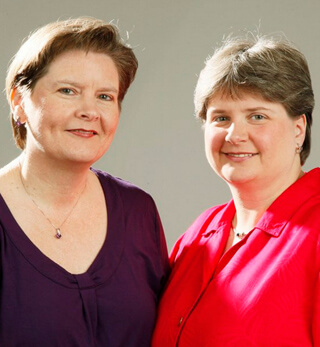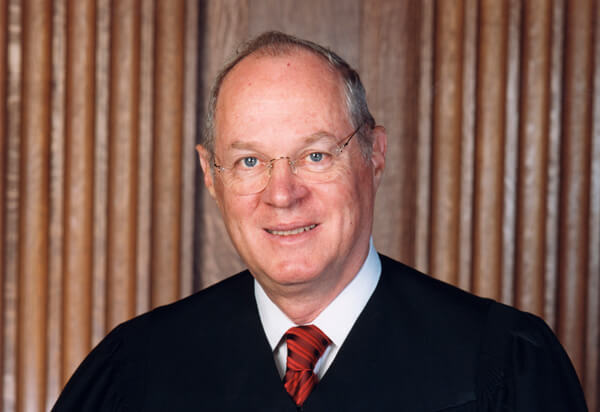BY ARTHUR S. LEONARD | The Oklahoma Supreme Court has unanimously ruled that a woman who spent 10 years raising a child with her former same-sex partner can use a legal approach known as the equitable doctrine of “in loco parentis” to get standing to sue for custody or visitation of the child.
The November 17 opinion, written by Justice Joseph M. Watt, drew on the US Supreme Court’s June 26 marriage equality decision and an early 10th Circuit marriage equality ruling that the high court declined to review.
According to Watt’s opinion, Kimberly Sutton proposed marriage to Charlene Ramey in 2004 and the women exchanged rings as life partners. They then decided to have a child and to raise the child jointly, with Sutton conceiving the child through donor insemination. A friend of the couple donated the sperm with the understanding that he would have no parental responsibilities or rights, and the baby boy was born in March 2005.
Retroactively applying rights recognized in US Supreme Court marriage ruling, Sooner State leapfrogs New York
The court’s opinion makes clear that Ramey was involved in Sutton’s pregnancy and the child’s delivery, in line with the birth mother’s wishes. “Sutton prepared a baby book for their child identifying both Sutton and Ramey as parents,” Watt wrote. “Sutton gave a card to Ramey congratulating her on becoming a ‘mother’ to their son and that she would be a wonderful mom.”
During the Sutton’s pregnancy and the child’s early months, Ramey supported the family, and when Sutton went back to work, given their schedules, Ramey ended up being the primary caregiver to their son, who always referred to Ramey as “mom” but, according to the opinion, “did not begin to refer to Sutton as ‘mom’ until the age of five or six. Even today, their child will sometimes refer to Sutton, the biological mom, as Kimberly and not as ‘mom.’”
The couple lived as a family, and it was Ramey who claimed their son as a “dependent” on tax returns. Even after the women ended their relationship, they continued living together as roommates for many months while continuing to raise the child together.
After Ramey moved out, however, Sutton opposed her attempt to maintain parental ties. When Ramey sought custody and visitation rights, Sutton argued that since they had no written parenting agreement and Ramey had no legal relationship to the child, she lacked standing to do so. The district court agreed with Sutton, dismissing the case for lack of a written parenting agreement, and Ramey appealed.
On appeal, the court framed the questions before it this way: “(1) Whether the district court erred finding that a non-biological parent lacked standing because the same-sex couple had not married and had no written parenting agreement; (2) Whether a biological mother has the right as a parent to legally erase an almost 10-year parental relationship that she voluntarily created and fostered with her same-sex partner.”
Siding with Ramey, the court answered the first question “yes” and the second question “no.”
Noting that a 2014 ruling it made upheld the right of a non-biological mother to enforce a written co-parenting agreement, the State Supreme Court acknowledged that Ramey’s challenge presented a new issue and that the district court had ruled based on a narrow reading of last year’s decision.
Relying on the US Supreme Court and the 10th Circuit marriage decisions, the state high court said it was broadening its earlier ruling and “acknowledging the rights of a non-biological parent in a same-sex relationship who has acted in loco parentis” in cases where a couple “(1) were unable to marry legally; (2) engaged in intentional family planning to have a child and to co-parent; and (3) the biological parent acquiesced and encouraged the same-sex partner’s parental role following the birth of the child.”
The Oklahoma court, then, is effectively applying the marriage rulings retroactively to benefit couples who had children at a time when they were being denied the constitutional right to marry. The ruling presumably would not apply to same-sex couples who do not take advantage of the right to marry now, though such a non-biological parent can presumably still be protected if there is a written co-parenting agreement.
The court pointed out that this new case only applies to the issue of standing. Once a trial court determines that a same-sex co-parent has standing to seek custody or visitation, it will then examine what is in the best interest of the child, just as it would in a custody and visitation dispute involving divorcing different-sex couples.
The court’s decision is not without precedent in other jurisdictions, where courts have used various equitable doctrines to establish standing for a same-sex co-parent to seek continued contact with the child he or she was helping to raise.
But some states, including New York, have refused to embrace this equitable route. The New York courts still adhere to the now-anachronistic 1991 Alison D. v. Virginia M. ruling by the Court of Appeals, the state’s highest bench, which treated a co-parent as a “legal stranger” to the child who has no right to seek custody or visitation. We now have the anomalous situation that the Oklahoma Supreme Court is more progressive on gay family law than the New York Court of Appeals!
Brady R. Henderson of the ACLU of Oklahoma Foundation and Oklahoma City attorney Rhonda G. Telford Naidu represented Ramey on this appeal. Sutton was represented by Oklahoma City attorney Kacey L. Huckabee.


































